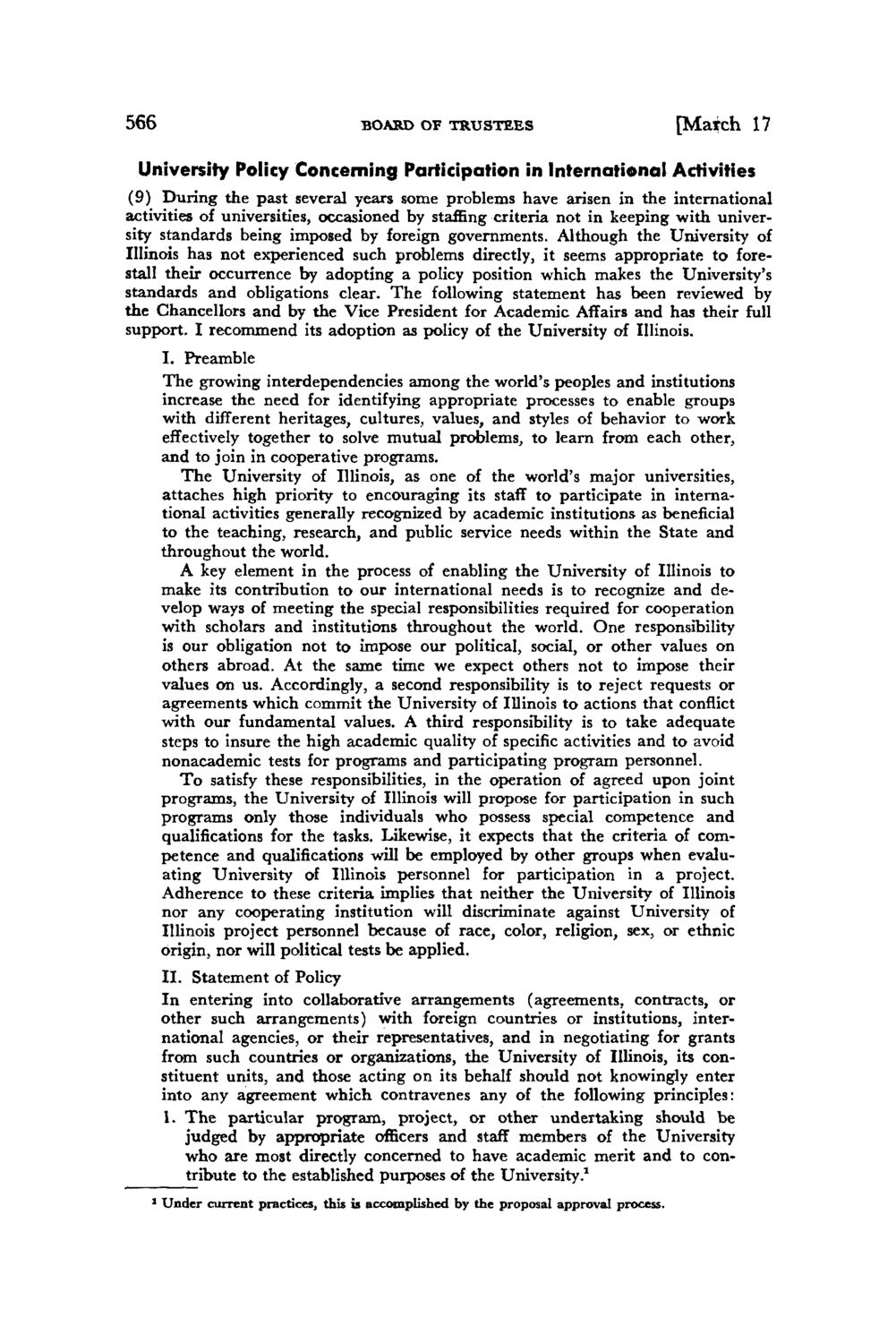| |
| |
Caption: Board of Trustees Minutes - 1976
This is a reduced-resolution page image for fast online browsing.

EXTRACTED TEXT FROM PAGE:
566 BOARD OF TRUSTEES [March 17 University Policy Concerning Participation in International Activities (9) During the past several years some problems have arisen in the international activities of universities, occasioned by staffing criteria not in keeping with university standards being imposed by foreign governments. Although the University of Illinois has not experienced such problems directly, it seems appropriate to forestall their occurrence by adopting a policy position which makes the University's standards and obligations clear. T h e following statement has been reviewed by the Chancellors and by the Vice President for Academic Affairs and has their full support. I recommend its adoption as policy of the University of Illinois. I. Preamble The growing interdependencies among the world's peoples and institutions increase the need for identifying appropriate processes to enable groups with different heritages, cultures, values, and styles of behavior to work effectively together to solve mutual problems, to learn from each other, and to join in cooperative programs. T h e University of Illinois, as one of the world's major universities, attaches high priority to encouraging its staff to participate in international activities generally recognized by academic institutions as beneficial to the teaching, research, and public service needs within the State and throughout the world. A key element in the process of enabling the University of Illinois to make its contribution to our international needs is to recognize and develop ways of meeting the special responsibilities required for cooperation with scholars and institutions throughout the world. One responsibility is our obligation not to impose our political, social, or other values on others abroad. At the same time we expect others not to impose their values on us. Accordingly, a second responsibility is to reject requests or agreements which commit the University of Illinois to actions that conflict with our fundamental values. A third responsibility is to take adequate steps to insure the high academic quality of specific activities and to avoid nonacademic tests for programs and participating program personnel. T o satisfy these responsibilities, in the operation of agreed upon joint programs, the University of Illinois will propose for participation in such programs only those individuals who possess special competence and qualifications for the tasks. Likewise, it expects that the criteria of competence and qualifications will be employed by other groups when evaluating University of Illinois personnel for participation in a project. Adherence to these criteria implies that neither the University of Illinois nor any cooperating institution will discriminate against University of Illinois project personnel because of race, color, religion, sex, or ethnic origin, nor will political tests be applied. I I . Statement of Policy I n entering into collaborative arrangements (agreements, contracts, or other such arrangements) with foreign countries or institutions, international agencies, or their representatives, and in negotiating for grants from such countries or organizations, the University of Illinois, its constituent units, and those acting on its behalf should not knowingly enter into any agreement which contravenes any of the following principles: 1. T h e particular program, project, or other undertaking should be judged by appropriate officers and staff members of the University who are most directly concerned to have academic merit and to contribute to the established purposes of the University. 1 Under current practices, this is accomplished by the proposal approval process.
| |